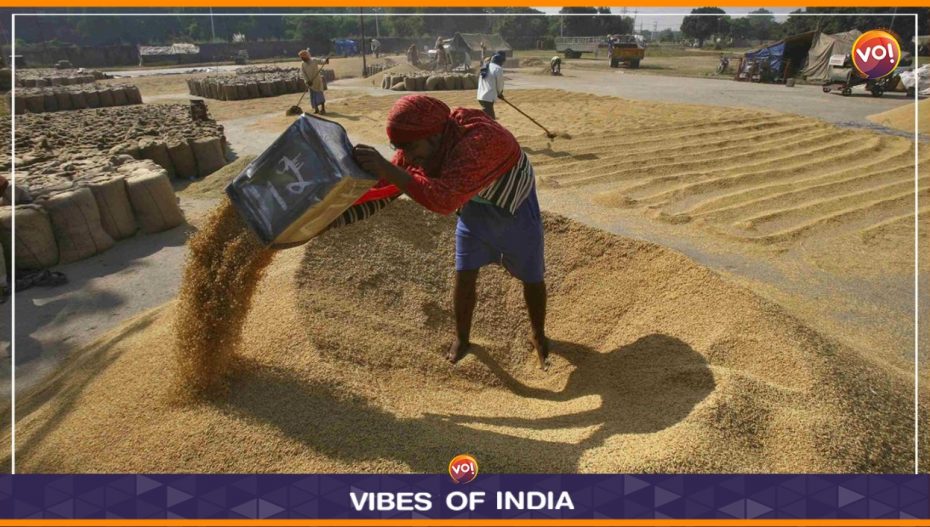Following the discontinuation of the free foodgrains scheme after December, the government is engaged in inter-ministerial consultations to assess the position of stocks in the central pool as it explores lifting the May 2022 ban on wheat exports.
The measures are being taken in a calibrated way taking into account the supply of stocks in the market and the required distribution under the National Food Security Act (NFSA).
A new factor is that the overall distribution is now set to be lower in quantity after the announcement given that additional allocation under Pradhan Mantri Garib Kalyan Yojana (PMGKAY) – launched in April 2020 to alleviate Covid distress — has now ended.
On December 23, the government announced the discontinuation of PMGKAY under which it gave 5 kg of foodgrains per month to about 81.35 crore people free of cost over and above their NFSA entitlement of 5 kg per person per month at Rs 2-3/kg. The government decided to make available the 5 kg/person/month foodgrains under NFSA free of cost for one year from January 2023.
Wheat stocks in the central pool have been depleting on an average by 2 million tonnes every month over the last six months. As per data by Food Corporation of India (FCI), wheat stocks was at a six-year low of 19.02 million tonne as on December 1. In November, wheat stocks were recorded at 21 million tonne.
During October-December, a total of 8.3 million tonne of foodgrains was lifted under the PMGKAY, comprising 6.5 million tonne of rice and 1.8 million tonne of wheat. Low level of wheat stocks had made the government opt for higher allocation of rice under the PMGKAY last year.
In May 2022, amid concerns of low wheat procurement, the Centre had reduced wheat allocation to some states/UTs and an additional allocation of about 5.5 million tonnes of rice was announced. In September 2022, the government banned the export of broken non-basmati rice to increase domestic availability.
To keep rising wheat prices in check, the government is also considering open market sales. The wheat crop for 2023-24 marketing season will start arriving in mandis by the end of March. Experts hope there’s no adverse weather situation like last year when there was excessive heat impacting wheat crop during March-April.
The government banned wheat exports in May 2022 to ensure domestic supplies and allowed shipments only for meeting food security needs of developing countries cleared on a case-by-case basis.
India exported 46.56 lakh tonne of wheat worth $1.5 billion during April-October last year as against 72.45 lakh tonne worth $2.12 billion in 2021-22. As per government data dated December 23 last year, of the 25.99 lakh hectare increase in all rabi crops, for wheat, the increase has been of 9.65 lakh hectares from 302.61 to 312.26 lakh.
Also Read: Lord Ganesh An Example Of Organ Transplant: CM Patel












